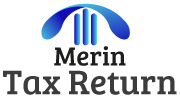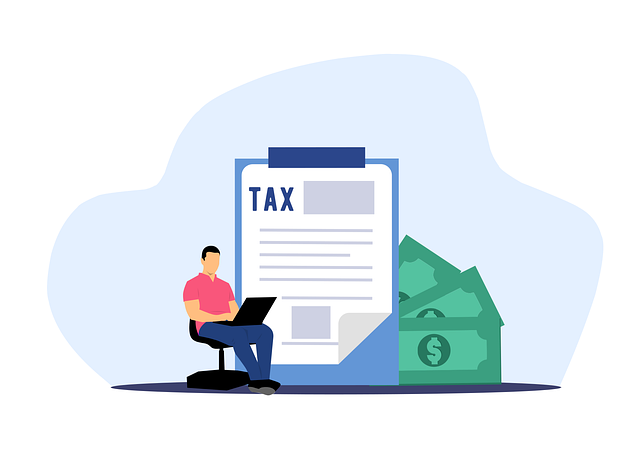Tax Return Self-Assessment in the UK: A Complete Guide and Why You Might Need an Accountant
Navigating the UK tax system can be daunting, especially when it comes to self-assessment tax returns. Whether you’re self-employed, a landlord, or have multiple income streams, understanding how to complete your tax return accurately and on time is crucial. For many, hiring a self-assessment accountant can make the process smoother and ensure compliance with HMRC regulations. In this blog, we’ll explore everything you need to know about self-assessment tax returns, the benefits of working with an accountant, and tips for staying on top of your tax obligations.
What is Self-Assessment?
Self-assessment is a system used by HMRC (Her Majesty’s Revenue and Customs) to collect Income Tax. It requires individuals to report their income, gains, and other financial details for the tax year (6 April to 5 April the following year). If you fall into certain categories, you’re legally required to complete a self-assessment tax return.
Who Needs to Complete a Self-Assessment Tax Return?
You may need to file a self-assessment tax return if:
- You’re self-employed or a sole trader with earnings over £1,000.
- You’re a partner in a business partnership.
- You’re a landlord earning rental income.
- You have income from savings, investments, or dividends above certain thresholds.
- You earn over £100,000 annually.
- You receive income from abroad that’s taxable in the UK.
- You need to pay Capital Gains Tax on profits from selling assets like property or shares.
- You’re a company director (unless it’s for a non-profit organization).
- You or your partner claim Child Benefit and your income exceeds £50,000.
- HMRC has specifically asked you to complete a return.
If you’re unsure whether you need to file a return, it’s always best to check with HMRC or a qualified accountant.
Key Deadlines for Self-Assessment
Missing deadlines can result in penalties, so it’s essential to stay organized. Here are the key dates to remember:
- 31 October (paper returns): Deadline for submitting paper tax returns for the previous tax year.
- 31 January (online returns): Deadline for submitting online tax returns and paying any tax owed for the previous tax year.
- 31 January: Also the deadline for the first payment on account for the current tax year.
- 31 July: Deadline for the second payment on account.
Penalties for late filing or payment can range from £100 for missing the deadline to additional charges based on how late the return or payment is.
How to Complete a Self-Assessment Tax Return
Completing a self-assessment tax return involves several steps:
- Register for Self-Assessment: If you’re new to self-assessment, you’ll need to register with HMRC. This can be done online or by post.
- Gather Your Records: Collect all necessary documents, including income statements (P60, P45), expense receipts, bank statements, and details of any other income or gains.
- Complete the Return: Log in to your HMRC online account and fill out the relevant sections of the tax return. This includes details of your income, expenses, allowances, and reliefs.
- Calculate Your Tax Liability: HMRC’s system will automatically calculate how much tax you owe based on the information provided. However, it’s a good idea to double-check the figures.
- Submit the Return: Once you’re satisfied that all information is accurate, submit the return online or by post.
- Pay Your Tax Bill: Ensure you pay any tax owed by the deadline to avoid penalties.
Common Challenges with Self-Assessment
Many individuals find self-assessment challenging due to:
- Complexity: The tax system can be difficult to navigate, especially if you have multiple income streams or unusual circumstances.
- Record-Keeping: Keeping track of all income and expenses throughout the year can be time-consuming.
- Calculations: Errors in calculating tax liability can lead to underpayments or overpayments.
- Deadlines: Missing deadlines can result in hefty penalties.
This is where a self-assessment accountant can be invaluable.
The Role of a Self-Assessment Accountant
A self-assessment accountant specializes in helping individuals and businesses complete their tax returns accurately and on time. Here’s how they can assist:
1. Expert Advice
Accountants stay up-to-date with the latest tax laws and regulations, ensuring you take advantage of all available allowances and reliefs. They can also advise on tax-efficient strategies to minimize your liability.
2. Time-Saving
Completing a tax return can be time-consuming, especially if you’re unfamiliar with the process. An accountant can handle the paperwork, leaving you free to focus on your business or personal life.
3. Accuracy
Accountants are trained to spot errors and ensure your return is completed correctly. This reduces the risk of HMRC investigations or penalties.
4. Peace of Mind
Knowing that a professional is handling your tax affairs can provide peace of mind, particularly if you have complex financial arrangements.
5. Representation
If HMRC queries your return, your accountant can act on your behalf, saving you the stress of dealing with tax authorities directly.
How to Choose the Right Accountant
When selecting a self-assessment accountant, consider the following:
- Qualifications: Ensure they’re registered with a recognized professional body, such as the Association of Chartered Certified Accountants (ACCA) or the Institute of Chartered Accountants in England and Wales (ICAEW).
- Experience: Look for an accountant with experience in handling self-assessment tax returns, particularly in your industry or financial situation.
- Fees: Understand their fee structure and ensure it fits within your budget.
- Communication: Choose someone who communicates clearly and is responsive to your needs.
Tips for Managing Your Self-Assessment
- Keep Accurate Records: Maintain organized records of all income and expenses throughout the year.
- Use Accounting Software: Consider using software like QuickBooks or Xero to streamline bookkeeping.
- Plan for Payments: Set aside money for your tax bill to avoid cash flow issues.
- Stay Informed: Keep up-to-date with changes to tax laws that may affect you.
- Seek Professional Help: Don’t hesitate to consult an accountant if you’re unsure about any aspect of your tax return.
Conclusion
Completing a self-assessment tax return can be complex, but with the right preparation and support, it doesn’t have to be overwhelming. Whether you choose to handle your tax return yourself or enlist the help of a professional accountant, staying organized and informed is key to meeting your obligations and avoiding penalties.
If you’re unsure about any aspect of self-assessment, consulting a qualified accountant can save you time, reduce stress, and ensure compliance with HMRC regulations. Remember, paying the right amount of tax is not just a legal requirement—it’s also an essential part of managing your finances effectively.
- Adding case studies or examples of individuals who benefited from hiring an accountant.
- Including more detailed explanations of specific tax reliefs and allowances.
- Discussing recent changes to tax laws and their implications.
- Providing a step-by-step guide to using HMRC’s online portal.
- Exploring common mistakes people make when completing their tax returns.

